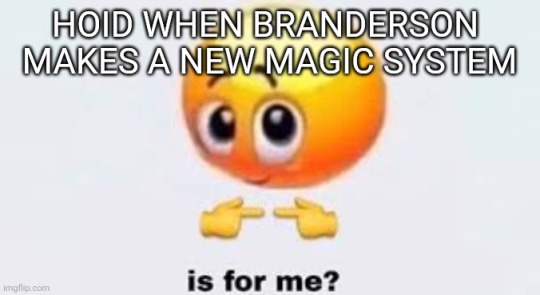Text
reblogging this cus I think the answer was obvious even at the time, but the vindication out of the most recent books. Glorious
Venli uses voidlight to fuel her powers, and lift apparently uses lifelight. The rest of the radiants use stormlight, so is it only the light based investiture of roshar that can be used to fuel radiant abilities, or would any form of investiture do if you were able to get a hold of some?
Or was that what Mraize was talking about when he wanted to get stormlight offworld, the fact that stormlight is actually a more effective way of obtaining investiture?
1 note
·
View note
Text
I haven't finished them yet (I'm a decent chunk through rotk) but i have some thoughts about LOTR that are rumbling around my head.
I kind of thought the books would make me laugh or thrill me more than I initially expected after reading a decent chunk of fellowship, but now I'm just. Profoundly sad.
These are stories of valour, of heroes and magic. But the time of magic is over, the oldest races are finding their time is over too, and theres a melancholy that affects the whole series. Theres no greater horse than Shadowfax, but there used to be. Anduril and some of the mains swords have histories and reputations, Frodo has his mithril chainmail, but these things arent being made anymore. All that remains is all that there ever will be, and when the magical races who wrought them are gone, there is no chance at recovery or reproduction.
The statues the fellowship pass that adorn the cover of my copy of fotr are weatherworn and indistinct from the finely carved shapes they used to be, and the world will not see wonders like them again for a long time to come.
I have an archivists heart, and preservation of important histories and objects is one of my key motivators, and the idea that many people already believe their history to be myth in middle earth is so soul-shatteringly sad.
0 notes
Text
idk the wheel of time is cool and all but i dont like that stuff thats not relevant to the characters anymore just. doesnt come up. 8 books in and the green man and eye of the world, which I assumed were big and well known parts of the universe, just havent really come up again. Yeah theyre gone but theyre still important legends right?
1 note
·
View note
Text
Kaladin letting the cobalt guard wear bridge 4 patches, but insisting they wear their original patches in rememberance of their old unit is such a great detail. Really speaks to his character I think
1 note
·
View note
Text
Hoid says hes afraid to forget how to play the flute... and some of his memories were stored in his divine breaths... and he lost his perfect pitch as well... oh hoid :(
1 note
·
View note
Text
How is bnha anime of the decade...... they aren’t even anime of the hour of the minute of the second
0 notes
Text
So I'm relistening to Way of Kings on my walk and a couple notes
- "Gaz had never gotten used to having one eye" serves to explain why he regrew his eye in RoW. I'd still like to see a disabled radiant who doesnt heal away their disability, the closest I think we've got is Kaladin's depression but we know stormlight doesnt heal mental illness so eh
- I'm almost crying in public because Kaladin's closest friends and staunchest supporters from Bridge 4 are either dead, betrayed him or nebulously not coming back... like the writing is good but I'm sad
1 note
·
View note
Text
The politics of the Stormlight Archive are hilarious because they’re full of moments like Shallan realizing “Wow the decadence of the lighteyes is violence to the darkeyes” and “being a vigilante just means disproportionate retribution to the darkeyes who aren’t responsible” and Kaladin going “actually it’s fucked up that the entire system of oppression is based around looking like Radiants” and “I don’t want to keep the Shardblade because I don’t want to justify the caste system’s power” but then like. lots of sympathy for oppressors and villifying angry marginals and generally not really doing anything about that
#yeah its wild#my hope is that after the timeskip this stuff will be brought under a microscope a little more
116 notes
·
View notes
Photo


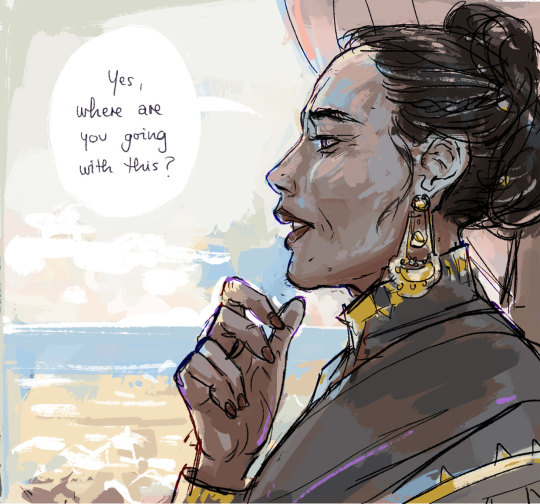
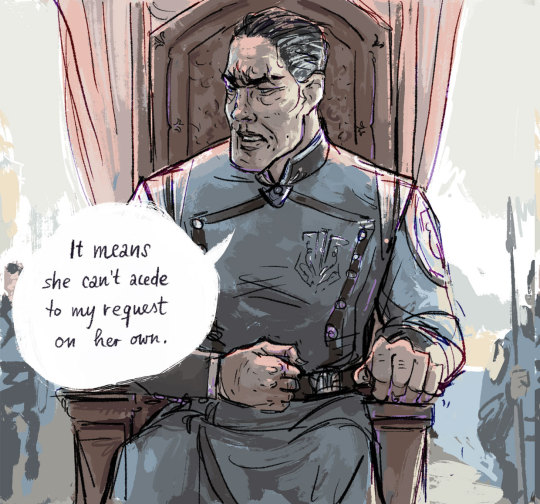

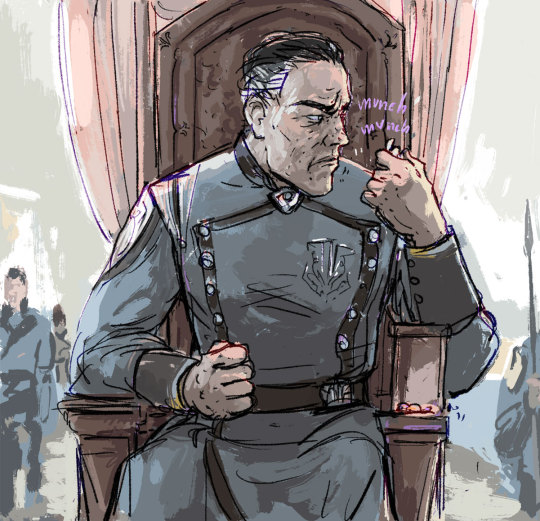
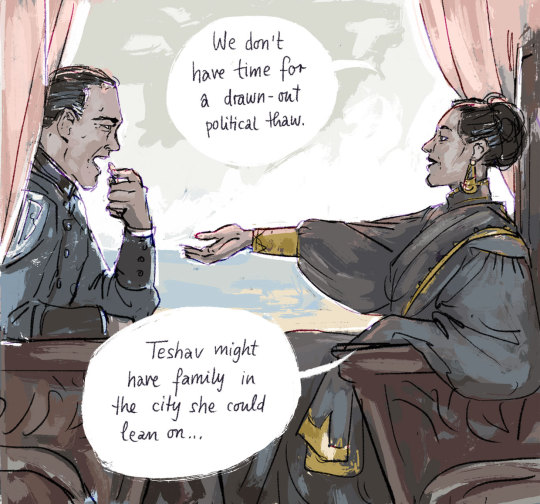
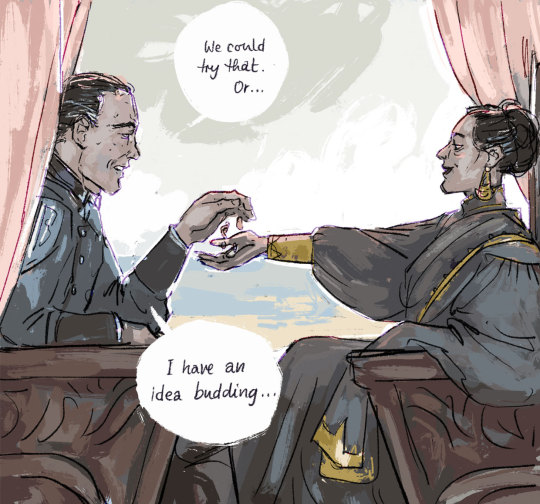
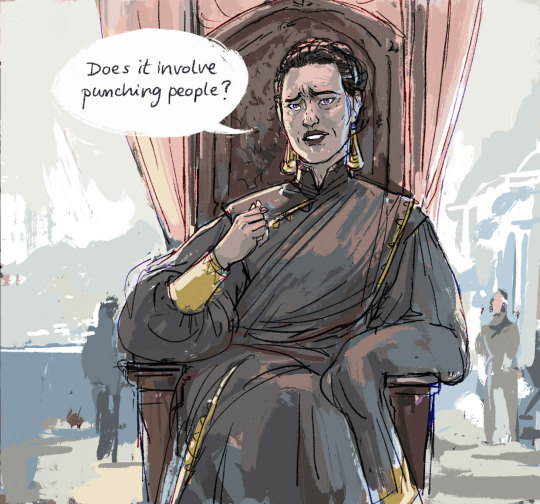

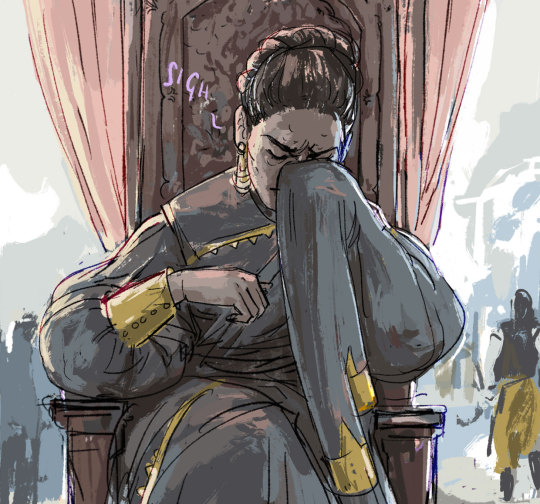
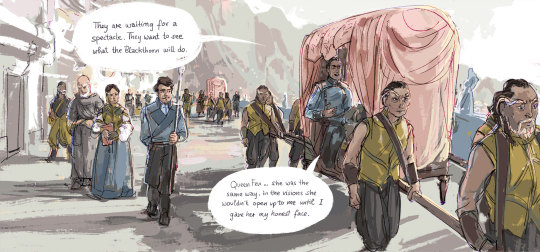
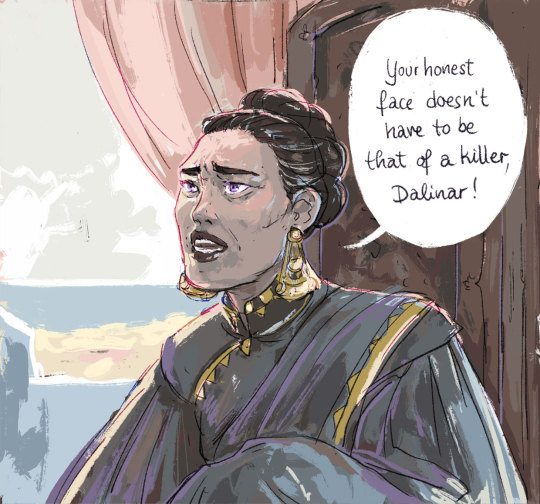
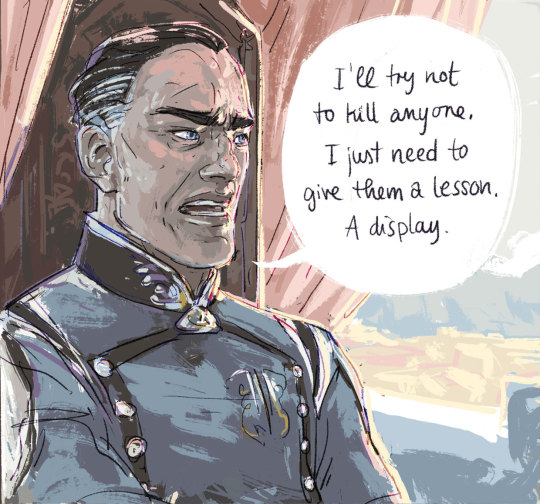
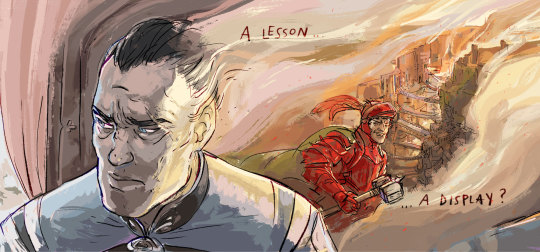
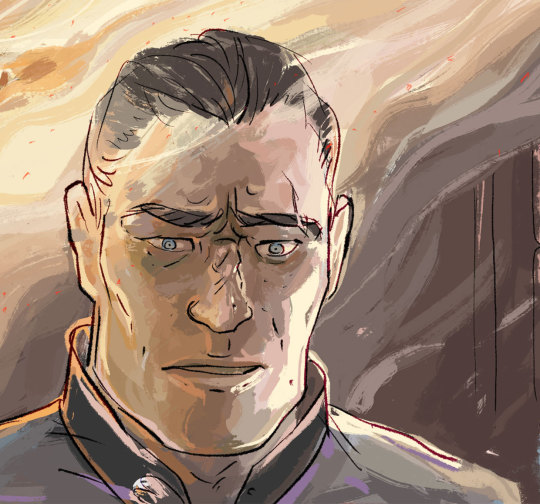

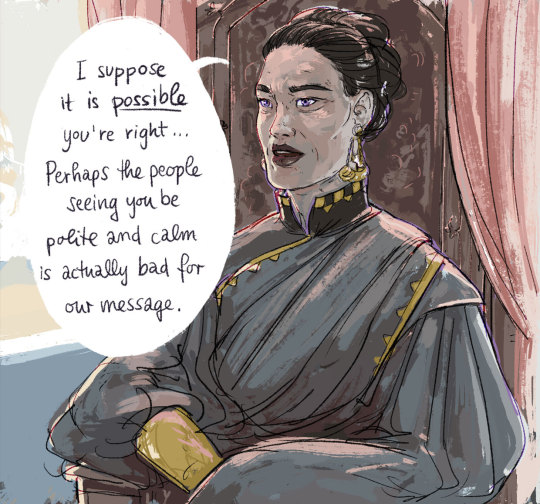

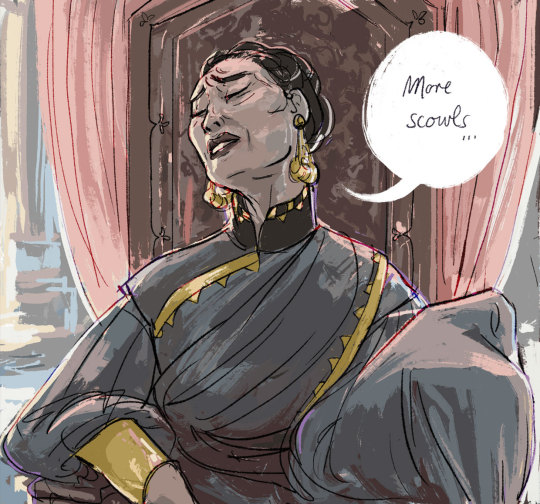


Oathbringer Part 3: Diplomat
Loooooooong post, I know. This dialogue took way more panels than I expected. Since I also plan to post this on instagram, I experimented more with single size panels (and conjoined ones). I had a lot of fun with the Thaylen City scenery and that tiny bit of the Rift… Not a dramatic scene here, but one with a lot of little details I like: Dalinar moodily munching on nuts he randomly finds in his armrest, Navani knowing exactly whom she married and hey, even Sadeas pops up shortly…
well, onto whatever comes next :D
2K notes
·
View notes
Text
Further Moash Discussion
There has been a good deal of Moash discussion on my feed recently and I’d like to weigh in on a few points. This isn’t the first time time I’ve written about the character: here is my post on his arc during WOR and here is the one focusing on Oathbringer and Rhythm of War. While I ageee that he is interesting, that the “eff Moash” meme is annoying and cuts off discussion, and that a redemption arc is not impossible, I think the apologia has gone rather far and is neglecting to acknowledge several salient facts. So I’m going to cooment on a few points I’ve seen.
Why is Bridge 4 so anti-Moash from the start of Rhythmof War?
Well, it’s not simply because he killed Elhokar. Or rather, that wasn’t an act performed in isolation. Moash switched sides and joined the enemy army that is trying to conquer Roshar in service of Odium. Traitors are generally ill-regarded by the former comrades that they betray, so Bridge 4’s reaction should not really be surprising. If he had killed Elhokar as part of a personal mission of vengeance, the reaction would likely have still been negative but not quite the same.
Secondly, the reactions we see from Bridge 4 early in ROW are after Moash has shown up in Hearthstone; killed innocents (the men in prison) and thrown Kaladin’s inability to save them in Kaladin’s face; and tried to convince Kaladin to kill himself. Of course Bridge 4 hate him for that.
Is Moash fighting against oppression? Is Moash motivated by fighting against oppression?
This is a crucial question of Moash’s character arc, and a nuanced one. Is Moash angry about Alethi oppression of darkeyes? Indisputably. Would Moash like to see the destruction of lighteyed dominance. Again, yes; he says so in TWOK. But is that the goal of the actions for which fandom hates him?
The assassination of Elhokar and his replacement with Dalinar would not have fundamentally altered the Alethi social system. Dalinar is not a social progressive; he is in fact opposed to Jasnah’s more transformative actions in Rhythm of War. The goal of the assassination is to replace a weak, incompetent leader with a strong, competent one, and simultaneously to take revenge on Elhokar. Graves case is that Elhokar’s kingship is bad for the stability of Alethkar; the assassination is to preserve the system, not to overthrow it. In fact, it’s to put not Dalinar as he is now, but the Blackthorn in charge: Graves expects that Elhokar’s death will spur Dalinar to become that man again. This would, with what we now know of the Blackthorn (though neither Moash or Kaladin knew it in WOR) be a change for the worse.
Moash wants revenge, but nothing he is doing is for the benefit of Alethi darkeyes as a group.
When we move on to Oathbringer, Moash’s arc in this regard becomes much more interesting. The chapter “Rhythm of Work” is fundamental to it. In this chapter, Moash is enslaved by the Fused; he reflects that he is enthusiastic, happy, and enjoying himself, and that the Fused are good masters. He considers the enslavement of the humans, darkeyed and lighteyed alike, to be just.
This was certainly far better than his days as a lighteyes, when he’d worried incessantly about the plot against the king. It felt good to be told what to do.
Moash has never thrown off the Alethi social ideology in which he was inculcated; instead, he has repurposed it. Throughout their youth, he and Kaladin were taught that the lighters ruled because they were grand, noble, superior, and that gave them the right to rule. Now, Moash has applied that ideology to the relationship between humans and Fused: the Fused are better, nobler, more well-judging, so it is just and right that they should enslave humans, and humans should be grateful for good conditions as slaves.
He is not fighting against oppression - quite the opposite! He’s simply discarded the unworthy lighteyed masters and chosen new masters who live up to the idea of what the lighteyes were supposed to be.
And this is the context of his thoughts when he rescues the Singers who Kaladin previously helped. “You’re becoming like us,” he says to the Fused. He needs the Fused to be better than humans, to not disappoint him like lighteyes did, because it is that conviction of their superiority that lets him accept enslavement and not be burdened with having to think for himself or make his own decisions.
There is something very strange to me in arguments that treat someone who is motivated by actively desiring enslavement as if he was some kind of revolutionary liberator.
And this isn’t an attitude that Moash throws off at some later point. Throughout the rest of Oathbringer and Rhythm of War, it is the same. He finds motivation only in relation to people from his past (Elhokar, Kaladin); the rest of the time he passively does as he is told without caring why, as with his murder of Jezrien. He seeks out manual labour because it is mindless (and perhaps, because it is physically painful). His sole drive in Rhythm of War is the same as it was at that moment in “Rhythm of Work” when he rescued the abused Singers - to remove anything that could cause him to question his choice to join Odium’s side. In Rhythm of War, that ‘anything’ is Kaladin.
That doesn’t mean he cannot change; indeed, it would make it particularly striking if he did. Venli’s change was no less radical. But he will not necessarily do so. At the moment, he is the precise opposite of a warrior against oppression; he seeks out and desires subjugation and unquestioning obedience, and only acts on his own initivative to destroy whatever might undermine that obedience.
That’s also, I think, whe he doesn’t feel sorry for killing Teft. To regret an action is to conceptualize the idea that it would have been better to have done otherwise. Moash’s fight all through ROW was to extinguish the existence of the concept that it was possible to do otherwise than he had done. He can feel bad, but that only leads to “I want to have still done this, but not feel bad about it” rather than to “I want not to have done this”.
As a result of this: I feel like saying that condemnation of Moash’s actions constitutes “condeming an oppressed person for resisting oppression in the wrong way” is wrongheaded because Moash isn’t fighting against oppression. He’s fighting for subjugation - of himself and others. We’re not talking about Kelsier killing off nobles here.
Is Moash responsible for his actions taken while Odium is removing his emotions?
Short answer: Yes. Fully as much as Dalinar was responsible. for his actions taken under the influence of the Thrill. A little more so, even since Moash knows exactly what Odium is doing, whereas the Alethi were not as clear on the nature of the Thrill. What Odium is doing to Moash is what Moash wants. To say he isn’t resposible is like saying that a person who, by their own choice, gets drunk, and then beats up another person while drunk, is not guilty by reason of drunkenness. This is not how either the law works (else it would be intrinsically impossible to convict a person for drunk driving) or how morality works. Moreover, the state that Moash is in is one he specifically wanted, and every time he loses it his reaction is to immediately panic and try to get it back as soon as possible, not to go “having no emotions led to me doing horrifically evil things; I want to not be like that.”
Given his current state, I don’t see Moash making any attempt or having any desire to be free of Odium; very much the opposite. The best probability I can see for a redemption arc is Odium throwing him off (a newly-blind soldier isn’t especially useful, and Moash’s peculiarities appealed more to Rayse, I think, than they would to Taravangian; Taravangian is much more big-picture than Moash), leaving him blind, alone, and with a mountain of guilt. But I’m biased in this regard; my instinctive sympathy with self-loathing characters makes this appeal to me.
90 notes
·
View notes
Text
The more I read of nightblood the more I become convinced he’s the best character in the cosmere
87 notes
·
View notes
Photo


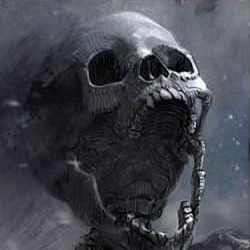
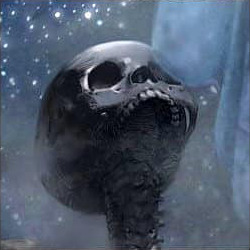
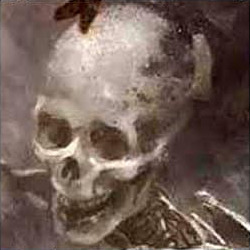
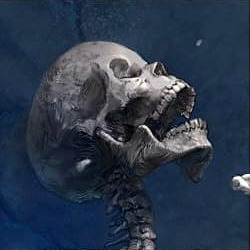


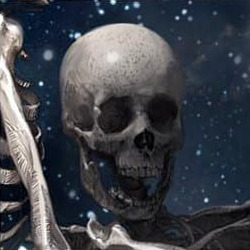
matching icons for you and the squad
8K notes
·
View notes
Photo

#locked tomb#thank u bee#idk what this means either???#probably something in harrow#harrow the ninth
107 notes
·
View notes
Text
Dalinar: Friendship ended with Sadeas, Amaram is my new best friend
945 notes
·
View notes
Text
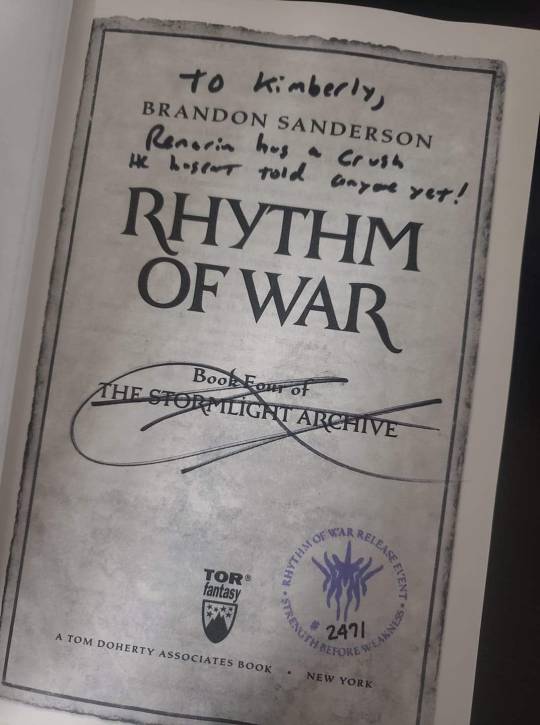
EXCUSE ME BRANDON??? YOU CAN'T DROP A BOMB LIKE THAT AND NOT TELL US MORE!!!!!
714 notes
·
View notes
Text
One if the most powerful sentient beings in the cosmere being a sword is one of my favourite things about the series.
0 notes
